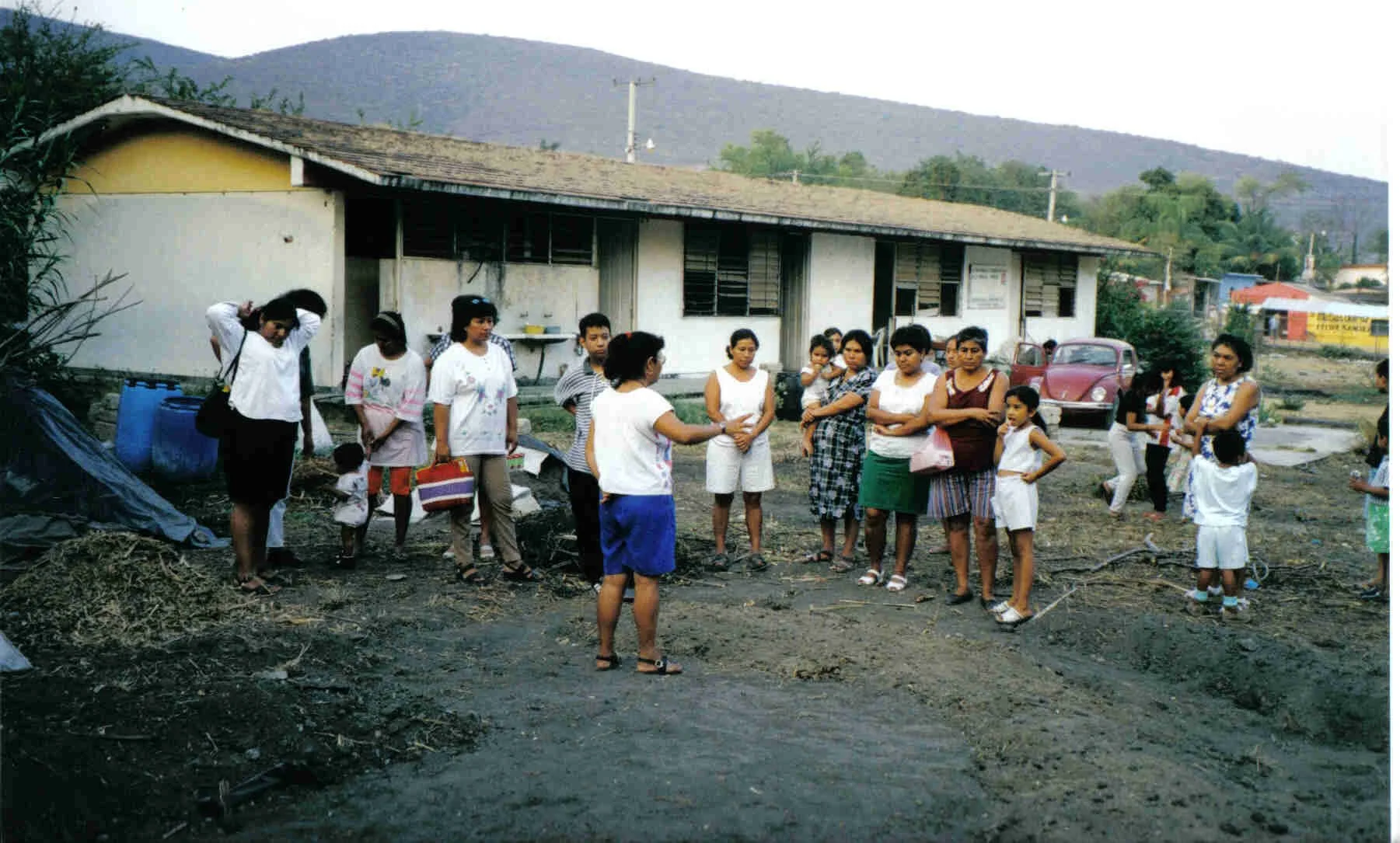My Privilege, my Commitment
My Privileged
I am a white, cisgender, nondisabled, heterosexual man, born in Canada. As a result, I have largely been the recipient of systemic privilege. However, I was raised in conditions of extreme economic disadvantage by a mentally ill single mother of 5 children, where I learned the trauma of economic scarcity. Growing up in Winnipeg, Manitoba as a 3rd generation Ukrainian, my granny and my mother spoke Ukrainian as their mother tongue, and I attended Ukrainian language and dance lessons on the weekends with my 4 other siblings.
The community and food felt great — especially since my mother had kicked my dad out of the house when I was 2 years old, and I sadly never met him until I was 18; when I finally did, I understood more deeply the loss of the support of a father that had been taken away from me. As the youngest in the family, I was close to my mom; we all knew “something was not right”, but there was no diagnosis, and little support. I spent a lot of my time at my friends’ homes, but they never came over to my house. When I was 18, I met my dad’s parents for the first time — my grandmother and grandfather. My grandmother was kind, as my grandfather shuffled around the house using his walker in excitement to meet me for the first time. He was too old to say anything to me, and that was one of the last times he was able to walk around, before he died. I only met him that once. My mother’s illness had separated me from our cousins and close family, even though they were only minutes away from us in the same town. Finally, with the help of my siblings, at 18, I found enough courage to finally meet my dad — and I discovered him to be a kind and caring man, within a strong community who loved him — a stark contrast to my mother’s lifelong story of him.
“My traumatic challenges as a child growing up, became my gift in my ability to empathise & support others in their challenges.”
My early broken family experiences directed me (unconsciously) towards my path in search of community health & wellness. I knew there was a better way to live. This guided me slowly into a career in community development as my trauma as a child growing up became my gift in my ability to empathise and support others in their life challenges. Nonetheless, I knew that, despite the challenges I’d experienced, I still carried significant privilege. I came to better understand this through 2 pivotal moments that changed my life course, which happened in Mexico, in 1998.
My Commitment
I studied Cultural Anthropology, and I slooooowly began to become aware of my white, male privilege; at the same time, I was getting A’s for my essays writing about global poverty and the suffering of those making clothes, toys, and technology in sweatshops. I volunteered at Oxfam, and I felt frustrated by my academic studies, without actively being engaged to do anything about it. Since my courses in history were Latin American based, I studied Spanish language, and I activate chose to go to Mexico to see first hand some of the communities I was learning about. I drove down with an old beater of a half painted tin box ‘83 Honda Civic, along with a friend and my dog for 4 months between semesters.
While I drove through Chiapas (and lost the use of my transmission’s 5th gear!), I was well aware of the political tensions. This was the late 90’s and indigenous people were being removed from their land, in favour of large corporate plantations and crops. The Mexican communal agrarian land based “edijo” system was being torn away from indigenous hands, and placed into private ownership. This was happening after the (contested) 1992 election based on the choice for a new trade agreement (NAFTA) or not, which would fundamentally change the basis of the Mexican Revolution to keep land in communal, not private, hands. With significant concerns of voting fraud, the Zapatista movement rose up to defend their communal land based edijo system, with a powerful slogan from revolutionary Emiliano Zapata:
“Better to die on your feet than live on your knees”.
As 2 white men travelling, we were never stopped at any of the military roadside check-points, even with our hippy long hair and colourful clothes. As we were constantly waved past, however, I could see that everyone else was being stopped and searched.
“Foreign eyes present were quietly protecting the villagers from being removed, and or killed.”
Since I had studied the 50 years of US “influence” in Latin America, and wanted to be a more active participant in stopping the removal of indigenous people from their lands, I decided to join an organisation who were protecting rural remote villagers from direct military removal. As a foreign (and white) person, the only task was to be present in the villages when the army arrived; to act simply as a witness – a process that had been effective at reducing the violent incidents due to media coverage of foreigners in the remote rural villages. Foreign eyes present were quietly protecting the villagers from being removed, and or killed.
“What was a young white man, raised in a city, going to do for these villagers against an army with guns, in the rainforest?”
I took part in a very short training on how their program worked in Chiapas. I was the only one present. The trainer apologised saying it’s a very bad time, as the army is advancing quickly, and everyone who was trained had quickly been moved into the villages as witnesses. He offered me 3 hours of discussion, before he took off to get to a village and I had a realisation. I was completely unprepared to enter a military war zone. What if things became violent — as they likely would? What impact would that have on me to witness? And, could I trust myself to remain neutral, simply to sit there? Of course I would want to help people, to try and stop the army from harming them – and I might get myself killed, or cause further trouble for others, in the process. What was a young white man, raised in a city, going to do for these villagers against an army with guns, in the rainforest?
It did not feel like my place to be there, but it was no easy decision to simply walk away. I felt responsible for the lives that might be lost or harmed without the witnessing presence of an outsider. In my heart, I made a commitment towards somehow enabling the structural and systemic changes I knew were necessary to prevent such oppression from continuing in the world. I decided to step away from my University studies, and engage more within my own community and my own culture where I could more likely effect positive change.
The following year, I was fortunate to receive an internship with my local social justice organisation (VIDEA) to support local farmers in my own Canadian community; however, even through that organisation I shortly found myself back in Mexico, interning with a Mexican charity that ensured women and children had access to locally grown healthy food.
“I had the (embarrassing) realisation that often, because of my skin colour, I could do things that others could not. ”
Garden Workshop at Communal Land site
2nd Pivotal Moment in Mexico
It was my second time in Mexico where I had the embarrassing realisation that often, because of my skin colour, I could do things that others could not get away with. While working in Mexico, my landlady’s partner was rushed into the hospital, but she could not get any information about him from the hospital staff. For 3 days, she’d sit outside, and wait with all the others’ also uncertain of their loved ones' well being. One by one, she’d witness the loss of the others waiting alongside her, as they received the terrible news their loved one had passed.
I was stunned that she had no idea what happened to her partner, and my friend. So I went with her to the hospital, and walked right passed security towards the Head of Medicine’s office. Nobody stopped me. I knocked on his door and when he answered, I requested access to our friend. He immediately accommodated me to the head nurse. Within minutes, we were at her loved one’s bedside, now aware that he had had a significant surgery, and was literally green in his complexion. I am not sure he would have survived on his own, isolated and afraid. But now, my landlady was able to be with her partner at his bedside for the next day, until he was released from hospital and she was able to take him home.
To my realisation, my ability to achieve success and find her friend – while many others were isolated and alone sitting outside waiting for any news – was facilitated by nothing other than my white skin, and my ability to barge into the head of medicine, and not be stopped by security. I became more aware of my privilege, and the systems that maintained it.
“I realised that I had to take responsibility for the privilege I carried.”
It was then that I realized that if I am not actively working to change the system, I am part of the problem. I realised that I had to take responsibility for the privilege I carried. Even while I worked to support my local communities in Canada, I did my best to do so with an intersectional awareness, and also an understanding of how decisions made at the local level in Canada affect other people around the world.
Your Privilege. Your Commitment.
This is my journey, my story. Have you identified your privaledge and your commitment? The world needs all of our gifts on offer at this time of Great Turning — the shift from the Industrial Growth Society to a life-sustaining civilization. Being present with where you have come from – your historical, cultural & socio-economic context of your own privaledge – will support you to uncover your privaledge and your commitment, which may inspire the gifts you have to offer. So here are 3 resources to support your continued learning journey:
Peggy McIntosh offers 26 guiding questions to reflect upon
“… whites are carefully taught not to recognize white privilege … I have come to see white privilege as an invisible package of unearned assets which I can count on cashing in each day, but about which I was ‘meant’ to remain oblivious. White privilege is like an invisible weightless knapsack of special provisions, maps, passports, codebooks, visas, clothes, tools and blank checks...”
Madelanne Rust-D’Eye offers a 4 part series titled The Roots of White Supremacy Are In Our Bodies
“If white people are going to contribute to truly inclusive group cultures, we must actively practice tolerating discomfort in our bodies, so that we can open ourselves to the personal and cultural transformation that discomfort will bring.”
Reni Eddo-Lodge offers a book Why I'm No Longer Talking to White People About Race
“Not all white people, just the vast majority who refuse to accept the legitimacy of structural racism and its symptoms. I can no longer engage with the gulf of an emotional disconnect that white people display when a person of colour articulates our experiences. You can see their eyes shut down and harden. It’s like treacle is poured into their ears, blocking up their ear canals like they can no longer hear us.”


